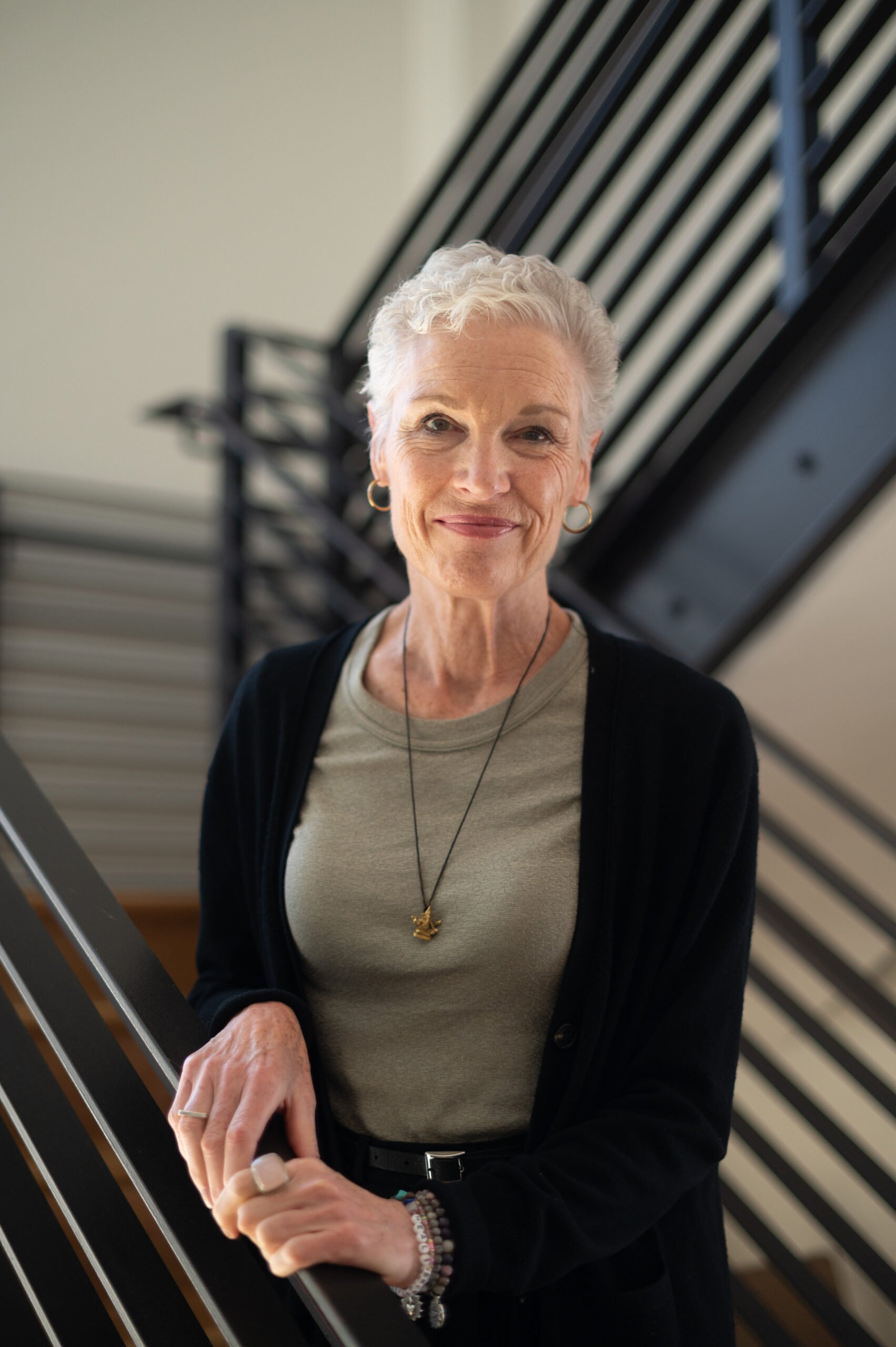Editor’s Note: This interview, which first appeared in our January/February 2025 print issue, was originally scheduled to publish online later this month. On January 20, the news broke that Cecile Richards, 67, had died.
“This morning our beloved Cecile passed away at home, surrounded by her family and her ever-loyal dog, Ollie,” said her family in a statement. “Our hearts are broken today but no words can do justice to the joy she brought to our lives.”
Praise from the forces of progress in Texas poured in immediately.
“Cecile Richards has created generations of troublemakers who will never stop fighting for the Texas we deserve and the communities we love,” said Felicia Martin, president of Texas Freedom Network, which Richards founded, in a statement. “Her passing is a devastating loss to our movement, but the echo of her life will live on in every rally we hold, testimony we deliver, and vote we cast.”
Below is our interview, which was conducted by freelance reproductive rights reporter Mary Tuma in November.
Cecile Richards has spent most of her life advocating for reproductive rights. The former head of Planned Parenthood, Richards led that organization for 12 years through multiple attacks from politicians seeking to defund the group, the conservative media’s disinformation, and threats from extremist anti-abortion activists. Upon her departure in 2018, she’d elevated the national healthcare provider to an influential force within Democratic politics.
Richards’ roots are as Texan as they come: Born in Waco in 1957, she got an early start championing women’s rights when, at 16, she helped Sarah Weddington—the young attorney who won Roe v. Wade before the U.S. Supreme Court—get elected to the Texas House. When her mother, former Texas Governor Ann Richards—the last Democrat to ascend to that statewide officemstuma@gmail.commade her gubernatorial bid in 1990, Richards joined her mom’s historic campaign. A few years later, Richards founded the Texas Freedom Network, a watchdog group that monitors the religious right.
Richards has also been a labor organizer for low-wage workers across the country, served as deputy chief of staff for California Congresswoman Nancy Pelosi, and in 2019 co-founded a progressive political action group, Supermajority, to support policies that empower women.
After the fall of Roe in 2022, Richards redoubled her efforts to protect abortion rights, co-creating Chat with Charley, an online chatbot that provides confidential information on how to access abortion care. Her latest project, Abortion in America, amplifies the stories of those impacted by abortion bans on social media platforms. The idea is to capture a broad audience with short, free videos that can be shared and replayed. Stories, told and retold, are the key to igniting change, Richards says, recalling wise words from her mother.
Diagnosed in 2023 with glioblastoma, a rare and aggressive form of brain cancer, Richards remains undeterred from continuing her battle to help restore abortion rights, using all the time at her disposal to fight back. The Texas Observer spoke with her about the incoming Trump administration, Texas politics, and survival strategies.

TO: Can you tell me about your new project, Abortion in America?
I really believe the only way we are going to change this country and create understanding and empathy is by storytelling. I’ve never felt that so strongly. While there is so much incredible reporting on the impact of abortion bans on patients, the stories only last in the public’s mind for maybe a week if we’re lucky, then kind of just disappear. My mother always said,“It’s only when you get sick of repeating something that people are really starting to hear it,” and I really believe that is true. We are working to capture these stories in a more permanent way and tell them repeatedly. And find new stories, as well.
My hunch is that short videos, usually not more than a minute long, that tell a story that people resonate with, have turned out to be our most effective strategy. For instance, we recorded a video of Texan Ryan Hamilton [whose wife nearly died after being denied miscarriage care] on an iPhone and it now has nearly 2 million views on TikTok.
And, of course, in Texas there are countless other stories that need to be heard again and again. I’m amazed by the courage and resilience of the people who have undergone such horrible and tragic experiences in these banned states who are speaking up. Making it real for people is so important.
I came up with the initial idea for this storytelling project after [Texas’ 2021 near-total abortion ban] SB 8 because even though Dobbs hadn’t happened yet, women were still unable to get abortions and it seemed pretty clear this was a harbinger of things to come. The project had a slow start due to my brain tumor diagnosis.
What does Donald Trump’s win say about this nation, especially when it comes to people’s views on reproductive rights?
I don’t think you can draw too many conclusions from this election on the way the country thinks about abortion rights because as we all know, it was a unicorn. And we had a lot of ticket-splitting, including on the abortion issue.
Where we had a semi-even playing field was on the ballot measures in 10 states—and we saw that in most of those states people don’t want the government making decisions about their healthcare when given the choice. But too many states, including Texas, don’t have the option of allowing their residents to vote on legalizing abortion [without the Legislature’s approval], so we will ultimately have to find a national solution. But we also need to prepare people for a long fight in all 50 states.
Do you suspect that the Trump administration will enforce the Comstock Act, an archaic law that could bar medication abortion nationwide, or another type of national abortion ban in the next four years?
First of all, the very fact that we are even talking about the Comstock Act is so nuts, but anything is possible. I think a federal abortion ban, given the makeup of the Senate and Congress, is very possible. It’ll be interesting to see where the chips fall when Republicans who were successful in elections have to look at these states [that voted for abortion access] and see that this is a non-partisan issue. People’s desire to have a healthy pregnancy and healthcare, and not have to face medical tragedy, doesn’t have a party label. This is something I repeatedly learned in my 12 years at Planned Parenthood. This is about basic healthcare being denied simply because of your geography.
Republicans have done a lot of things that were tactically smart over the years. Banning abortion care is not one of them. It’s not going to age well. The Dobbs decision was horrific, and the tragic stories are not going to end.
Do you have any advice for individuals who want to protect their reproductive rights under a Trump administration?
Order abortion pills, and order them for your family and friends. Even in states where abortion is illegal, you can get pills shipped to you, although how long this will last under the Trump administration, I don’t know.
What are your thoughts on how right-wing the Texas Legislature has become, not just in terms of abortion rights? And what do you think your mother would have said about the growing extremism in Texas?
In some ways I thank God that Ann Richards is not around to see this. Or maybe she is from on high? It’s not only not the state I grew up in, it’s a meaner state. It’s not just that the politics are increasingly abhorrent, but there is a lack of respect now.
Everyone has these halcyon memories of the great days of Austin, but I do believe that in the past, even if people disagreed, it wasn’t this hateful. And you can extrapolate that for this entire country. So, this also is not the country I grew up in. I don’t know if we’re coming to a reckoning here, but it’s hard to live in a place that’s so mean.
There is a sense of dread, fear, and anxiety among those who did not vote for a second Trump presidency. Where do we go from here?
This election was a wakeup call for a lot of people and we all have our own opinions of where we went wrong. Not to be Pollyanna-ish, but I do think we should not give up on people who voted out of fear. We should listen to them and their concerns. I don’t mean those who focused on race, gender, and immigrants in these hateful ways, but the people who are genuinely afraid of the future.
Most people are just trying to live their lives the best they can. In many ways, these are not different people than who elected Ann Richards; we just need to be in conversation with our neighbors and be willing to hear them out. I do believe we can get back to a better place.
This interview has been edited for length and clarity.
The post Cecile Richards Isn’t Giving Up the Fight appeared first on The Texas Observer.
